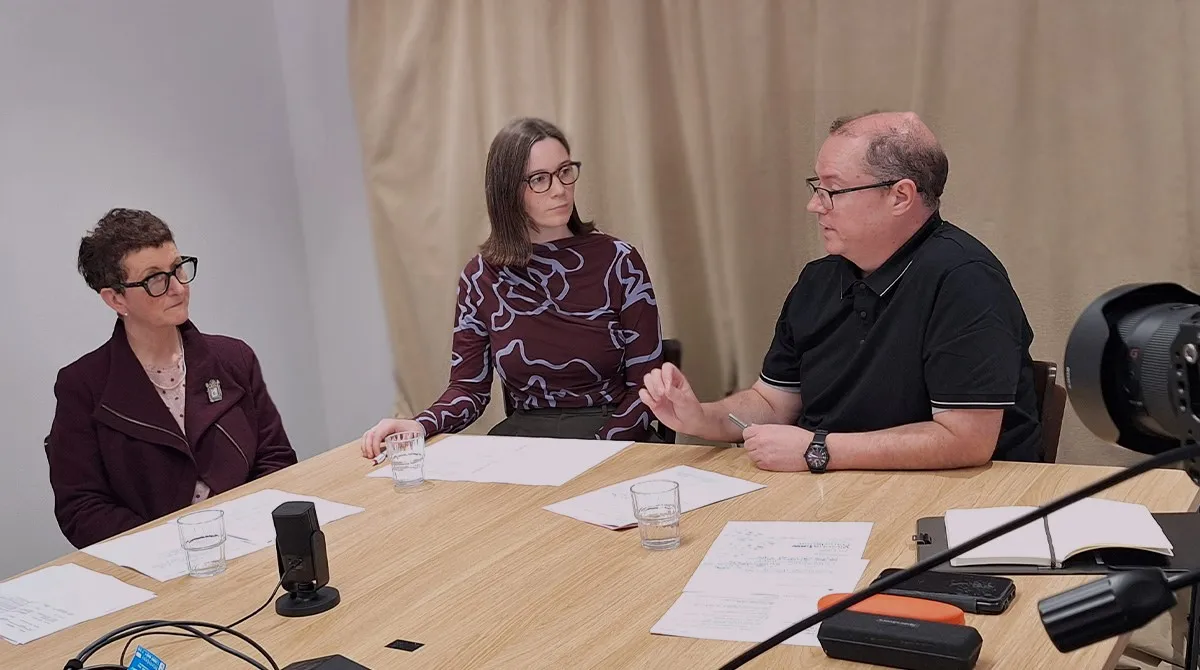Understanding the links between legal need and housing insecurity
The Research Network explores the legal challenges faced by renters amid rising housing insecurity, highlighting the need for urgent reforms to better support vulnerable tenants

Our recent webinar, The hidden legal crisis in rental housing, highlighted the increasing legal challenges renters face, especially single-parents, as housing insecurity worsens.
Bringing together legal researchers, advocates, and people with lived experience the Research Network event provided the opportunity to discuss how housing stress and unmet legal needs are connected.
Moderated by VLF Executive Director Lynne Haultain, the session featured presentations from Dr Hugh McDonald, Research Director at Victoria Law Foundation, and Hannah Gray, Senior Researcher at Tenants Victoria. Their insights were complemented by a powerful video testimony from Macy Choudhury, a single mother navigating the complexities of the rental market.

PULS reveals renters face disproportionate legal issues
Hugh presented new findings from the Public Understanding of Law Survey, revealing stark disparities in legal need based on housing status. The data showed that renters experience significantly higher rates of legal problems than homeowners, with public housing tenants reporting the highest prevalence of justiciable issues.
The most common legal problems for renters were about repairs, maintenance, and security. However, the data showed public housing tenants also faced more legal issues with family matters, government services, debt, and personal injury.
Looking into the resolution of problems, the new data demonstrated that even when seeking help, public renters faced the highest levels of unmet legal need. Hugh pointed to a systemic mismatch between the support people require to resolve legal problems and what the justice system currently delivers.
The data also highlighted the vulnerability of single parents, many of whom are renters. This group was found to experience more frequent and complex legal issues and was more likely to take no action, often due to limited legal capability or fear of retaliation.
“While renters have the highest rate of housing-related problems, they don't just have housing problems. They also experience higher rates of many other types of problems.” — Dr. Hugh McDonald
Lived experience highlights the real cost
The statistics presented during the webinar were brought into sharp focus through the experiences of Macy Choudhury. Sharing her story via video, Macy reflected on a sudden rent increase notice marking the beginning of a difficult and emotionally taxing journey.
Her testimony underscored the psychological toll of rental insecurity and the critical need for trauma-informed legal assistance. Macy described how legal processes, such as receiving an eviction notice, can have devastating consequences for families already under pressure.
“Handing out an eviction notice might just mean a piece of paper for them, but for the tenants living there, the second they get that letter, it just completely distraughts their mental well being .” — Macy Choudhury
As a participant in the Tenants Victoria research, Macy also reflected on the positive experience of contributing her story to the research. Supported by a trauma-informed approach, Macy found her initial search for help evolved into a deeper understanding of the law and an opportunity to illuminate the disconnect between the legal system and the lived realities of vulnerable renters.
Single parents face barriers to legal help
Hannah Gray, Senior Researcher at Tenants Victoria, presented findings from a qualitative study examining the legal help-seeking experiences of single-parent renters. Funded by a VLF grant and conducted in partnership with the Council of Single Mothers and their Children, the research was prompted by internal service data showing lower engagement and satisfaction among single parents.
The study identified three key barriers that restrict legal capability: a power imbalance in the rental market, limited access to affordable legal support, and challenges in retaining and acting on legal advice.
Hannah noted that many single parents hesitate to assert their rights due to fear of retaliation or being labelled “problem tenants.” This reluctance is compounded by a competitive rental market and a shortage of affordable housing, which heightens their vulnerability.
Participants in the research also described the difficulty of navigating fragmented service pathways. Long wait times, repeated referrals, and the need to retell their stories left many feeling exhausted and unsupported. Even when legal advice was available, stress, trauma, and competing responsibilities often made it difficult to absorb and act on the information.
Hannah advocated for multidisciplinary service models that integrate legal, financial, and social support to address the complex nature of rental issues. She also emphasised the importance of follow-up contact to reinforce advice and ensure clients understand their options.
“This multidisciplinary approach to legal services provision is the key to what a successful outcome actually looks like for renters facing housing issues, because we can actually meet them where they're at in their journey, not where we expect them to be.” — Hannah Gray
Rethinking policy and legal assistance services
The panel discussion concluded with a call for systemic change to improve legal outcomes for renters and single-parent families. Speakers emphasised the need for greater investment in integrated legal services, the design of support systems informed by lived experience, and policy reform to address structural inequities in the housing and justice systems.
Hugh noted that legal capability, including people’s ability to recognise, understand, and act on legal issues, is now measurable. The challenge, he said, lies in using this evidence to inform more effective service models and policy responses.
While the justice system alone cannot resolve the broader economic and structural drivers of housing insecurity, panellists agreed it must play a central role in a coordinated response. This includes strengthening protections for vulnerable tenants, improving access to legal support, and ensuring services are responsive to the realities of those they aim to assist.
As the legal sector grapples with rising demand and limited resources, the challenge is to design systems that meet people where they are, not where we expect them to be.
Watch the full webinar
More information
Read a case study to further understand how Tenants Victoria used data-driven research to capture the unique experiences and challenges faced by single-parent renters in Victoria.
Contact the VLF Research team to discuss how we can support you to work with PULS data and further understand the data.
Publications
Subscribe to our Newsletter
Courts, Community and Confidence
Join Chief Justice Richard Niall a for a recorded conversation about the law’s role in our community and the challenges shaping justice today.


